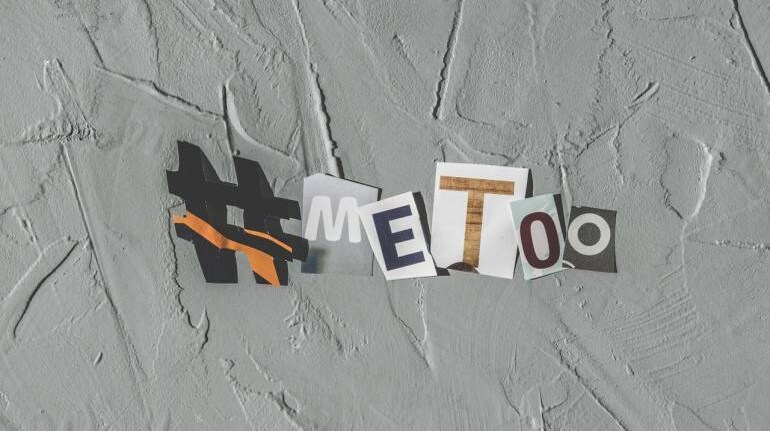



Note to readers: Healing Space is a weekly series that helps you dive into your mental health and take charge of your wellbeing through practical DIY self-care methods.
Ever since the #MeToo movement began, a lot of women have been vocal about their personal experiences with predators who do not understand the concept of consent, or power dynamics in relationships with a subordinate.
When a president of a top 10 company tells a much less powerful individual they’re going to walk into their workplace and announce that they are in love with them, or stakes out their home parking lot day after day unless they go out with them, they may imagine they’re being romantic, but what they are being is coercive.
Because of the power differential, any given consent, the ‘yes’ is not freely given. It includes an aspect of fear, awe, risk of loss of reputation, employment, opportunity, and also the ingrained self-doubt that arises when someone superior in designation and power, with renown for maturity, leadership, and who has the ear and trust of other powers that be, says or does something; they must know better, surely.
 Similarly, the relationship between a coach and a sportsperson is a dynamic of power between the supervisor and the athlete, essentially the teacher and the student, a position of trust. The coach holds decision-making power, and controls the sportsperson's preparedness to participate and receive opportunity and commensurate rewards. Most such programmes are residential and require travel and intensive training, often in remote or moffusil centres with poor infrastructure. There is an essential dependency of the subordinate on the supervisor.
Similarly, the relationship between a coach and a sportsperson is a dynamic of power between the supervisor and the athlete, essentially the teacher and the student, a position of trust. The coach holds decision-making power, and controls the sportsperson's preparedness to participate and receive opportunity and commensurate rewards. Most such programmes are residential and require travel and intensive training, often in remote or moffusil centres with poor infrastructure. There is an essential dependency of the subordinate on the supervisor.
In all situations of sexual harassment, the abuse of power is a key component and it erects real psychological blocks for the victim. Someone put in a difficult position may also have other compounding structural factors to consider, such as loans taken to secure the position, loss of reputation and social isolation if they protest, loss of custody of children, other forms of abuse such as a partner blaming them and throwing them out of the house.
Research shows us an individual who is attacked sexually may ‘freeze’ in the moment. The amygdala perceives threat, sends a signal to the hypothalamus, which stimulates the autonomic nervous system, releasing adrenaline and cortisol, stress hormones, that trigger changes in the heart, muscles, lungs, pain perception and digestion. The autonomic system consists of two parts: the sympathetic that activates the flight or fright response, and the parasympathetic which may make the evaluation that a ‘freeze’ is the best way to overcome the threat. The chosen response depends on experience, memory, pre-existing trauma, physiology and learnt behaviour.
After an attack, or in between attacks, fawning is the fourth response. Trauma is replaying of the abuse by the mind, which means the victim freezes in the present also, in the aftermath of the attack/s. So, when a victim of abuse is ‘nice’ to the person who abused them, or to others similar in position and power to those who abused them, it is also a trauma response that is self-protective in nature. Since the mind recognizes the circumstances and designations of power that resulted in abuse, it puts up soothing behaviours in the hope that it will prevent assault. This is like someone who tries to toss the dog a bone so that it will not attack them or talking the murderer down to delay the attack. You’ll see mice play dead, or birds in front of larger predators. It’s a limbic response. Except, in social situations such as homes or workplaces, this can be prolonged, over a period of days or months. This is also often misconstrued as ‘consent’.
The trauma can manifest as self-blame or shame and guilt that prevents a victim from complaining. And therefore, it is never as simple as saying ‘they could have just said "no".’ Victims of sexual abuse are routinely not believed even when they do speak up, and face compounded harassment when they complain partly because the nature of the crime is such that there is little evidence available and it comes down to hearsay. Hence, the #MeToo movement offered a vital momentum to the ability of women to speak out.
However, psychologically, a movement can give the individual the false assurance that their concerns also will be heard and resolved in the way that some complaints are. Often, those who find resolution through largescale movements do so in a group that grasps some leverage of their own. Either they have access to class and caste power players, the media, support from powerful quarters of their own, instruments to get their own voice across, or have a large or significant enough socio-political group or legal representation and funding mobilised such that they cannot be ignored. Truth is, most ordinary, powerless victims who embolden themselves to speak up are often crushed out by the subsequent legal process. It is important not to assume a mass movement will work in the same way, delivering the same outcomes, for everyone.
This is why gender and sexual rights movements in the 1970s began with feminist circles and support groups. From the mental health point of view as well, it is first and foremost important to establish a safe space (where you are trusted, believed and supported with confidentiality, the right kind of mental health, legal and financial support), over an open space (such as social media, the media and other visibility mechanisms).
Sexual abuse and harassment of any form takes a toll on the victim, and while the media upholds those who speak out as brave and bold, they forget to mention that they also become self-sacrificing to the larger cause because the process of coming out with the complaint is socially and personally eviscerating. It opens one up to re-traumatisation. From the mental health perspective, it is important to secure oneself first before one acts in the open.
Things to consider before you speak up
1. Go through a process of counselling so you have support for your personal trauma.
2. Therapeutic intervention helps you resolve self-blame, guilt, regret.
3. Understand flight, fright, freeze and fawn responses.
4. Find your safe spaces and circles. Take some time to build the support network.
You are not obliged to seek other people’s view of justice. You can decide for yourself what that looks like for you - whether it’s compensation, an apology or a jail term, or any other form of recompense.
Discover the latest Business News, Sensex, and Nifty updates. Obtain Personal Finance insights, tax queries, and expert opinions on Moneycontrol or download the Moneycontrol App to stay updated!
Find the best of Al News in one place, specially curated for you every weekend.
Stay on top of the latest tech trends and biggest startup news.